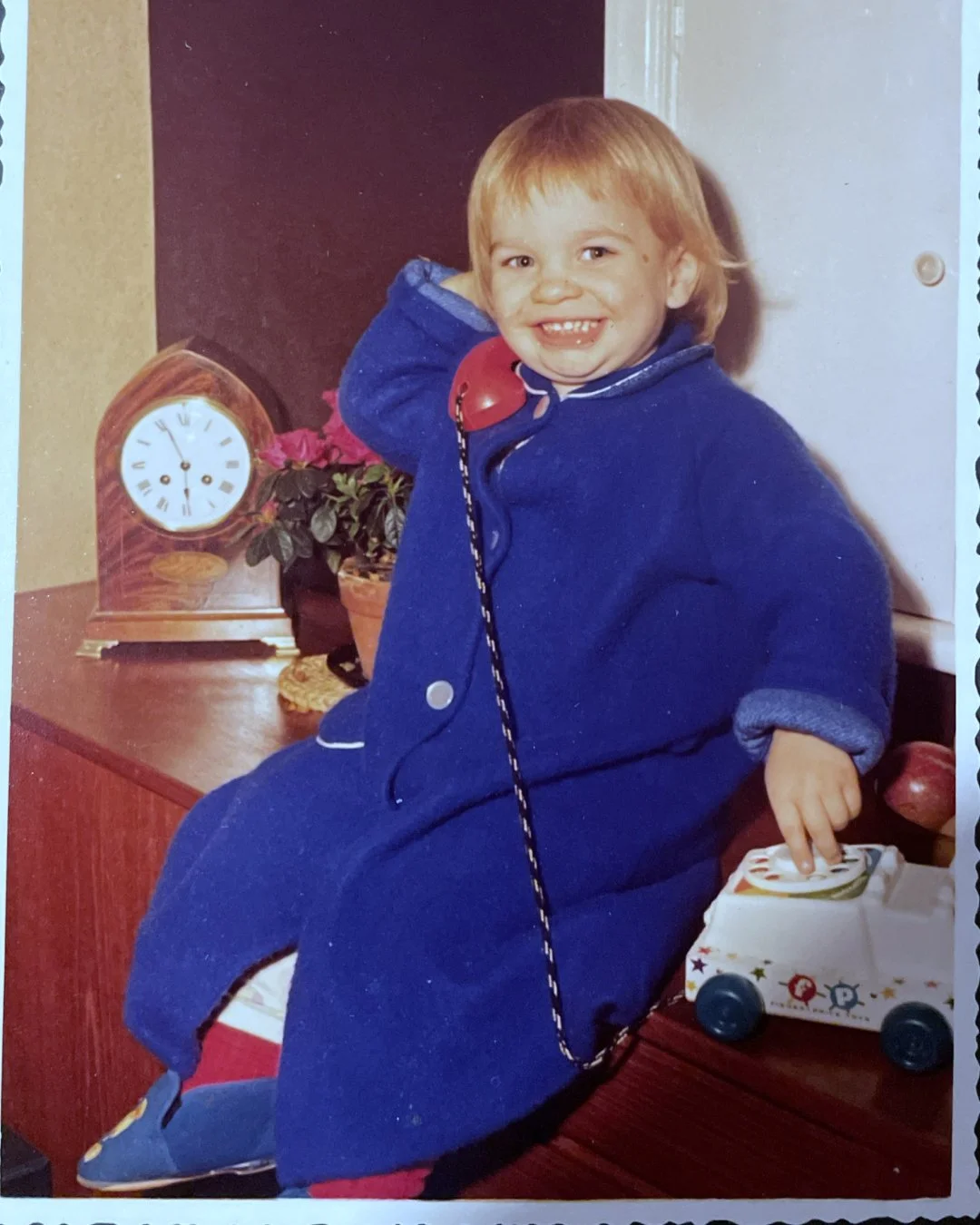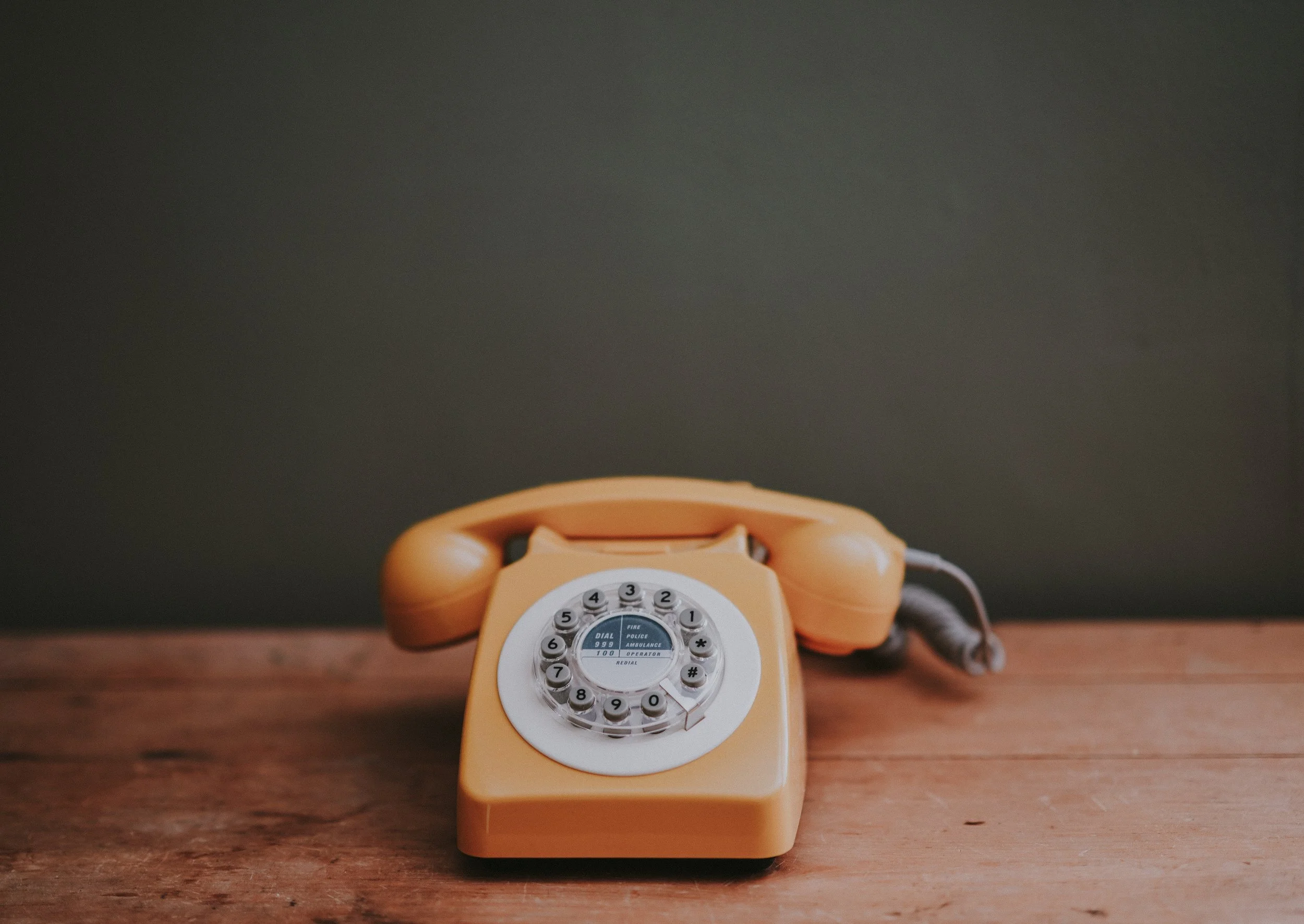How To Overcome Phone Anxiety
How it all began
My first taste of freedom came when I learned to answer the phone with
"7774185, who's speaking please."
Being born in 1972, I am a member of the 'Gen X' generation. During my childhood, I used to make phone calls over the landline. However, the younger generation is not used to phone conversations, they prefer communicating through text and emojis. Personally, I have big thumbs, so I usually leave a voicemail instead of typing. However, it takes me multiple tries before I can convey my message correctly. While starting a conversation with someone face-to-face comes naturally, knowing when to pause, jump in, and wrap things up is crucial when communicating via telephone.
When it comes to talking to a real person, I don't seem to be in the majority. Most people seem to prefer using their devices to text, message on social media, or email. Texting is hard to do because the keypad is small and hard to use, the phone's screen is small and dimly lit, and messages are limited to 160 simple text characters.
When using a cell phone to talk to someone, the choice to text instead of talk is clearly important. It's much harder to text than to make a phone call, and suggests that the choice is based on something else.
The good things about texting instead of calling
Some people like texting because it gives them time to think about what they want to say, so they can be more casual and honest, even with close friends. In Finland, Kasesniemi and Rautiainen did a study and found that teenagers have a "brave SMS self" that is different from who they are in real life. SMS lets the user put all of their mental energy into writing a message instead of having to pay attention to everything going on around them in real time. Speaking by making comparisons takes a lot of physical and mental energy.
Why it's better to talk on the phone than text?
By calling instead of writing an email, you can save a lot of time. A busy coworker may also answer much more quickly. Emotional context can also be communicated more effectively through the spoken word by using tonal manipulation, pitch patterns, intonation, etc., as well as nonverbal communication like breathing, pauses, and sighing, which can show empathy and frustration. Such verbal and nonverbal parts are hard to show through text alone.
Why do you talk on the phone?
Urgent Communication: Sometimes, the only way to get in touch with someone quickly is to call them. When time is of the essence, like in an emergency, a critical update, or a big business deal, talking on the phone lets you talk right away and directly, making sure that information gets sent quickly and correctly.
Personal connection: Even though most people use the Internet to talk to each other, nothing beats the warmth and personal touch of a phone call. Talking to someone's voice makes emotional connections stronger and gives a feeling of closeness that texting doesn't always give.
Complex Conversations: Talking on the phone is the best way to have conversations that need to be nuanced, clear, and fast. On the phone, people can go into more detail, ask questions, and get answers right away. This makes it easier to talk about hard things and figure out good ways to solve problems.
Getting to know someone: Talking on the phone is a great way to get to know someone and build a strong business relationship in a professional setting or when networking. Hearing someone's voice and talking to them in real-time makes the experience feel more personal and builds trust and credibility between the people involved.
Non-Verbal Cues: Phone calls don't have the visual element of face-to-face conversations, but you can still pick up on non-verbal cues like tone of voice, pitch, and speed of speech. These small hints give important context and help us understand the feelings, attitudes, and intentions behind what is being said, giving the conversation more depth.
Is phone anxiety real?
Phone anxiety, called telephobia, is a type of Social Anxiety Disorder (SAD). You don't have to have a SAD to hate making phone calls, but the two often go together.
According to ABC's Australia Talks survey, 56% of people aged 18 to 22 reported feeling anxious when they had to call someone. Older generations (like mine) are aware of how they sound on the phone. How they might be perceived if nonverbal cues were not used.
Phone anxiety symptoms
Symptoms of social anxiety can vary, but will most likely include: shortness of breath, racing heartbeat, sweaty palms, and avoidance of speaking at all. Emotional symptoms can include feelings of panic, dread, or embarrassment. Cognitive symptoms can include negative self-talk, racing thoughts, and an inability to concentrate.
What causes phone phobia?
If you have a SAD, it may be hard for you to understand what people say and do.
Nonverbal cues like facial expressions, gestures, and body language can convey meaning, build rapport, and improve the message. When you speak, changing your pitch pattern (intonation), tonality (voice quality), and dynamics (vocal level) are also important ways to show what you mean. But when you text, these things don't usually come into play...
Pressure to speak
Speaking on the phone is LIVE so to speak, rather like recording vocals in a studio. When the red light is on, there’s no turning back, no mistakes… with performance anxiety, we call it ‘red light syndrome’. So you have to prepare what you’re going to say, and that puts a lot of pressure on the speaker. If you are self-conscious about your voice or your ability to communicate your thoughts, not being able to read the other person's body language may make you feel uneasy or inhibited.
Being in the moment
When you're on the phone, you have to be fully there, and if you're thinking about something else, you might feel rushed or flustered. When you're busy, it's hard to put all your energy into the conversation. When you talk on the phone, you also have to keep up with the pace of the other person and use your listening skills. I often don’t feel like talking, so I text them instead.
How to overcome phone anxiety
Swap Texting for Calling Familiar People
It's easy to hide behind the comfort of texting, but sometimes, it can exacerbate phone anxiety. Challenge yourself to replace text messages with phone calls, especially when reaching out to close friends and family members. While texting has its place, hearing the warmth in someone's voice and engaging in real-time conversation can work wonders in alleviating phone-related fears.
Start with Familiar Contacts
The idea of calling someone new might seem daunting, so ease into the process by dialing up familiar contacts first. Begin with close friends or family members who understand your situation and will be patient with you as you build confidence. Each successful conversation will boost your courage for the next one!
Smile and Ask Open-Ended Questions
Whether on the phone or in person, a smile can work magic! Smiling while speaking on the phone can change the tone of your voice, making it sound more inviting and friendly. Additionally, try asking open-ended questions during your conversations. These questions encourage the other person to elaborate and engage, leading to more natural and flowing exchanges.
Embrace Acceptance and Commitment Coaching (ACC)
For those struggling with persistent phone anxiety, professional help can be transformative. Acceptance and Commitment Coaching (ACC) is a powerful approach that utilizes mindfulness and acceptance techniques to address anxiety. Through ACC, you'll learn to embrace your anxious thoughts without judgment and focus on taking action based on your core values. This approach empowers you to make meaningful changes in your life, including conquering phone anxiety.
Practice, Patience, and Persistence
Overcoming phone anxiety won't happen overnight, and that's perfectly okay! Be patient with yourself as you take small steps towards improvement. Like any skill, it takes practice and perseverance to develop confidence in making phone calls. Celebrate every milestone, no matter how small, and don't be discouraged by occasional setbacks.
Phone anxiety should never hold you back from connecting with your loved ones. By replacing texting with calling familiar people, smiling during conversations, and using open-ended questions, you can turn phone calls into enjoyable and enriching experiences. Additionally, seeking help through Acceptance and Commitment Coaching (ACC) can provide valuable support in overcoming phone anxiety and embracing a more fulfilling life. Remember, the key lies in practice, patience, and persistence - take those first steps, and you'll soon find yourself fearlessly dialling up your loved ones with a smile. Happy calling!





